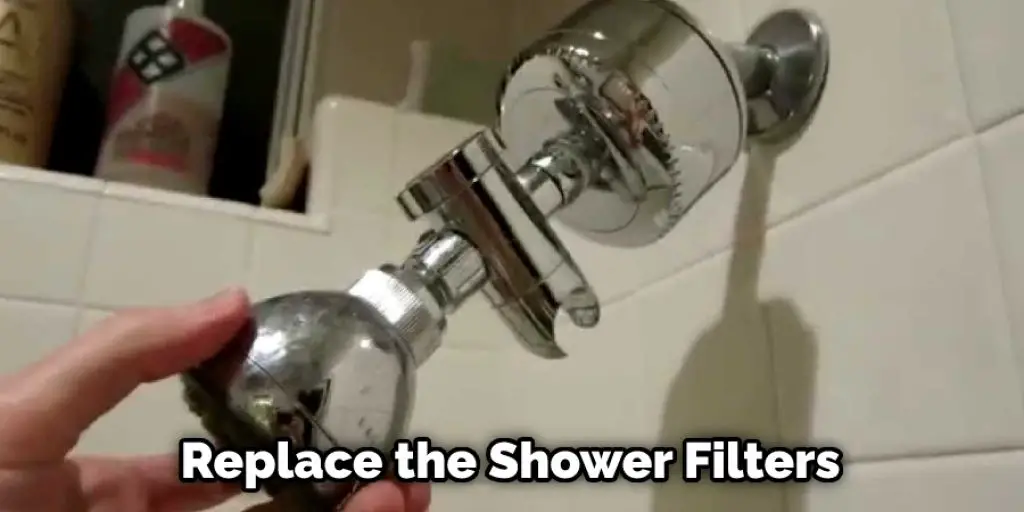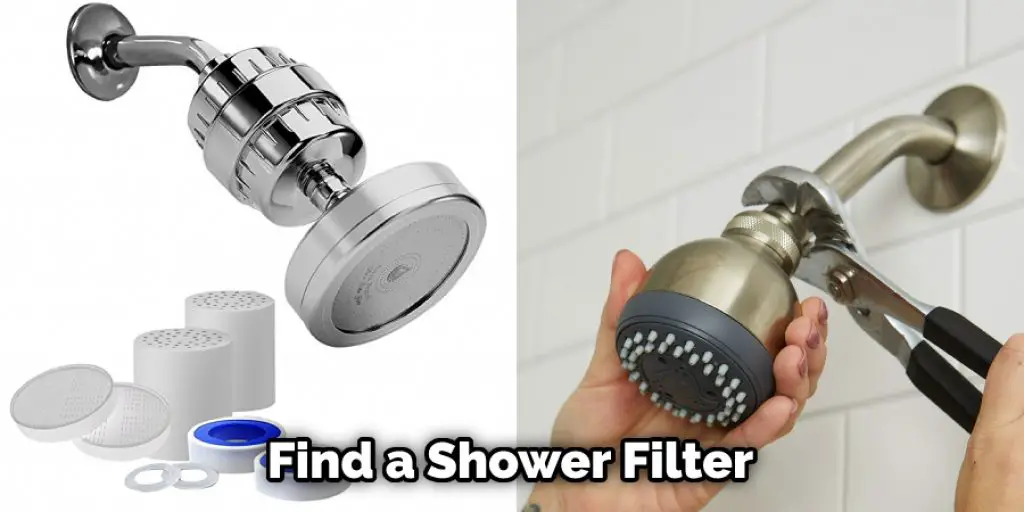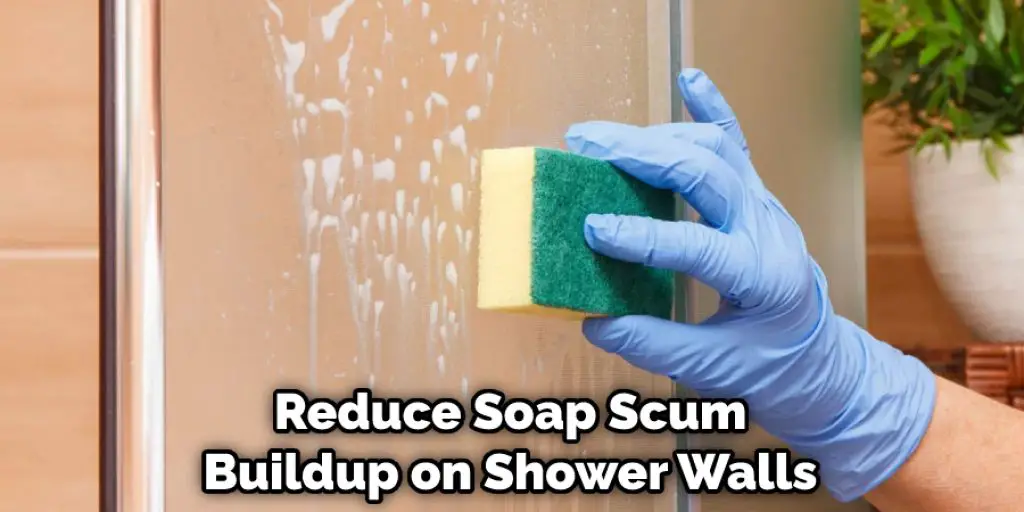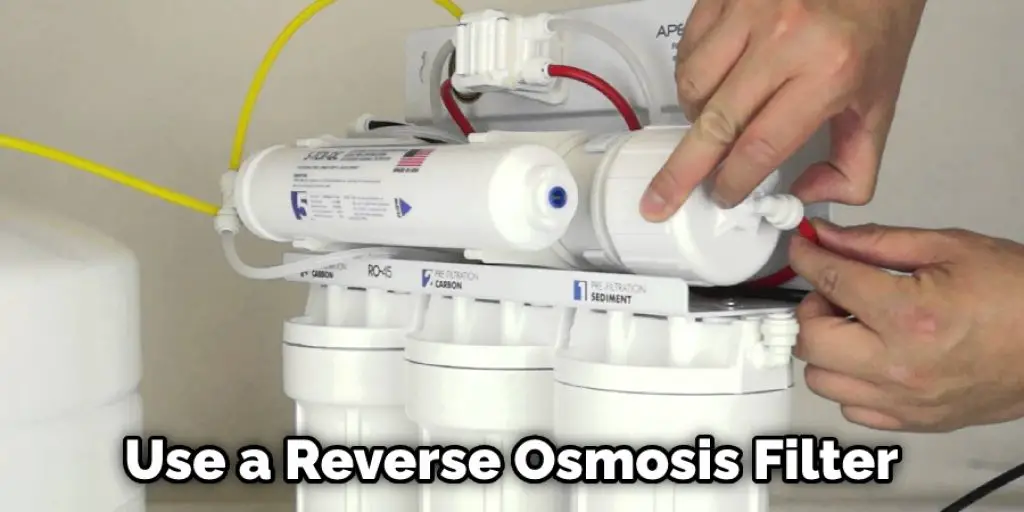The hardest part about showering is the moment you turn on the water and nothing comes out. It’s frustrating, but there are ways on how to get soft water in the shower without having to spend money. The first thing you need to do is look for your water pressure valve. Turn off the hot water entirely, then turn back on cold with full force for thirty seconds or until you see a change in pressure.

This will help open up any clogs that might be preventing the flow of water from getting through. If this doesn’t work, try changing your shower head filter or replace it if necessary by turning off both valves at once and unscrewing where they connect below them so that all of the old fluid can come out before putting in a new one! Read on to know more information.
Benefits of Soft Water in the Shower
- Everyone needs soft water for the shower!
- Soft water helps your skin, hair, and bathroom stay cleaner.
- Save a lot of money with a point-of-entry or whole house water softener.
- You’ll help the environment by using less soap, shampoo, and detergent.Your clothes will last longer with less wear and tear from soft water.
- You’ll save a lot of money on your water heating bill.
- Your skin will be less dry and itchy with soft water, something you might need to clean before getting into the shower!
- No more recycling plastic bottles of shampoo because using shampoo made for soft water is better for your hair!
- A point-of-entry water softening system is straightforward to install, usually within an hour.
- Amazingly, your skin will feel cleaner with less soap or even no soap at all if you have a whole house water softener!
What Does Soft Water Mean?
Soft water contains low levels of calcium and magnesium ions. These ions are responsible for eliminating soap suds and can leave a residue on your skin. On the other hand, hard water contains high levels of calcium and magnesium ions, making it difficult to form lather with soaps or shampoos.
Hard water is also more likely to shorten the lifespan of water-using appliances like dishwashers, washing machines, and water heaters. So, as you might imagine, people who live in areas where the average water hardness is above 100 ppm HCO3 are likely to want to have their water softened.
Difference Between Hard Water and Soft Water
Because of its high mineral content, hard water has a gritty texture and challenging-to-form lather. The minerals calcium and magnesium are primarily responsible for the soap’s abrasive hardness. As a result, your appliances, dishes, and other household goods will deteriorate faster in hard water. An area is considered to have hard water if the water contains more than 6 grains per gallon of impurities. Since impurities are dissolved minerals, they cannot be removed by boiling the water.
Soft water usually has a low concentration of minerals, and it is used for washing clothes or dishes because it lathers easily. Water is considered soft water if its concentration of impurities (minerals) is 2 grains or less per gallon. The term ‘soft’ does not mean that the water will not lather; it means that the soap tends to form larger, softer flakes in soft water rather than tiny, hard bubbles as they do in hard water. This is because the soap has a more challenging time reacting with calcium and magnesium in soft water, forming larger flakes to make up for it.
7 Effective Methods: How to Get Soft Water in the Shower
Here we have listed some practical methods on how to get soft water in the shower so that it helps you to soften your water without buying an expensive system.
1. Use a Shower Filter
This is the most expensive and complicated way, but it has been reported as the best! For those wanting to invest in better water for future benefits, you can find soft water shower filters from various online retailers.
They attach to the pipe and filter out minerals like calcium; this makes the water soft. The only downside is they need replacing about once a year and can be an initial investment.
2. Install a Water Softener
If you do not want to buy a shower filter, an alternative option to get softer water is installing a water softener system. This is an expensive option, but it will give you soft water for life and doesn’t need replacing like shower filters.

The installation price can vary depending on the amount of salt used and how big your household is, so this could be more cost-effective if you live in a larger house. You can find out more at your local water company.
3. Boil the Water
Before taking a shower, boil some water in an electric kettle. After this, please put it in a spray bottle and add your usual shampoo (and any other products such as conditioner). Then use this mixture to wash hair and body like normal. This makes soft water softer!
The only downside is that after each shower, you need to boil more water. Also, if you only ever want soft water in the shower, this is a much less effective method than buying or installing a system.
4. Use a Pre-softened Shower Head
There are a lot of showerheads on the market that have built-in filters. Some may contain resin beads to soften water. These can help you save money on buying separate shower filters, as long as they have enough capacity for your needs.
A downside is that some older systems only remove chlorine from the water, which is not enough to reduce calcium and magnesium. Also, the resin beads eventually wear out and need replacing.
5. Use a Salt Softener
Another way to soften shower water is by adding salt to the water. This reverts the calcium and magnesium into their dissolved form to avoid leaving residue on your skin or hair. You can buy special trays that dissolve salt in the shower water, which filters these minerals as you rinse.
These trays need replacing around every six months. You could also use rock salt or table salt in an old stocking. However, this is more difficult to dissolve and re-stock each time.
6. Use Distilled Water
Distilled water is naturally soft because it has been boiled until all the minerals have dissipated, so there are none left to stick to your skin. Distilled water is especially beneficial for those with skin conditions such as psoriasis or eczema, as it has no chemicals or minerals to irritate your skin.

However, you can’t use distilled water all the time as it lacks vital minerals that are essential for a healthy body. So using distilled water occasionally will help reduce mineral build-up. Just as with boiling water, you will need to do this before each shower or boil some beforehand and pour into a spray bottle.
7. Buy a Chemical-free Soap or Shampoo
Many standard shampoos and soaps contain sulfates, which strip away your hair’s natural oils. Over time these can dry out the hair and scalp, causing dandruff and brittle hair that breaks easily.
The best solution is to buy a gentle shampoo that does not contain sulfates, or better still, make your own. This way, you can avoid these harsh chemicals, which often have strong chemical smells, and be kinder to your skin at the same time.
You can also check it to clean aquarium gravel without removing water
Some Tips and Tricks
You can get soft water in your shower, save money, and protect the hair color you paid for without installing a whole-house water softener system. Find out how to get soft water in the shower with these easy tips.
- Purchase a shower filter designed for hard water, which will remove the calcium and magnesium deposits and reduce soap and shampoo residue (and any metals like copper and lead) in the water.
- Keep an open container of drinking water in your shower to absorb some of the minerals before they can adhere to your skin or hair; good news for those with dry skin.
- Shampoo and condition your hair under running water (after wetting it), not in the shower. When you rinse the suds from your hair, keep the water running over your head to help flush out some of the minerals before they can attach themselves to your scalp and strands.
- If you can’t find a shower filter for your water, take shorter showers and use cooler water (hotter water holds more minerals).
- Use distilled white vinegar in an empty spray bottle to remove mineral residue from bathroom surfaces after you’ve showered. Spray the shower walls and doors, let it sit for a few minutes, then rinse.

Why Is It Important To Get Soft Water in the Shower?
Some people are concerned about hard water’s effects on their hair, but there are other reasons to care. When showering with hard water, soap and shampoo are rinsed away very quickly because these products form a significant amount of suds when mixed with the hard water. Not only is the lather rinsed away, but also the soap and shampoo’s active ingredients.
Because of this, people living with hard water need to use more soap and shampoo than those that shower in soft water. This can be very expensive and damaging to hair/skin if one uses harsh shampoos or soaps. Moreover, hard water’s high mineral content can clog showers and leave a white film on sinks and tubs. Showering with soft water will help prevent those problems and soap scum in the shower and save money by using less shampoo and soap.
Frequently Asked Questions
Do Shower Filters Soften Water?
You can solder Nichrome wire, but you need to use a torch to heat the wire and apply pressure.
Nichrome is a nickel-chromium alloy that has been used in industry for many years as an excellent electrical conductor. It is typically used in temperature control applications like heating elements, ovens, and refrigerators because it resists oxidation and corrosion.
This makes it perfect for electronics such as soldering irons, blowers, switches, resistors, or any other device that needs to be protected from the elements or needs reliable contact between components.
Can I Add a Water Softener to My Shower?
Yes, you can add a water softener to your shower.
There Are Many Benefits of Adding a Water Softener to Your Shower Like :
- It will make the water softer and more pleasant to use.
- It will reduce soap scum buildup on shower walls and floors.
- It will reduce mineral deposits in your pipes.
- The water quality is improved by removing dissolved minerals that can cause scaling and corrosion of metal fixtures in the home’s plumbing system.

Can a Shower Head Make Hard Water Soft?
A shower head can’t make hard water soft. If you want to soften your water, then you will need to invest in a whole-house water softener. A whole-house water softener uses an ion exchange resin bed to filter out the minerals and metals that are present in your water supply.
Is Hard Water Bad for Your Hair?
Hard water is hard to take care of and has been known to cause hair loss, dry scalp, skin problems, and can also be damaging to appliances.
There Are Many Things That You Need to Do in Order to Make Sure Your Hair Is Healthy :
- Use a good shampoo and conditioner with sulfates (SLS).
- Rinse your hair thoroughly with warm water after shampooing.
- Add baking soda or apple cider vinegar as a rinse at the end of the shower.
- Apply conditioner for extra moisture every time you wash your hair.
Does Boiling Help With Hard Water?
Boiling water is a popular way to remove mineral deposits that can cause hard water. Boiling water will help reduce the amount of lime and other minerals in your drinking water, but it won’t actually remove them.
The easiest way to get rid of hard water is by using a reverse osmosis filter which will reduce the levels of minerals in your drinking water so they are not as noticeable.

Conclusion
So, now that you’ve learned the basics of getting soft water in the shower and why it’s essential for your skin and hair, we’ll leave you with some final words. We hope this article has been informative and helped clear up any confusion on how to get soft water in the shower.
If not, don’t worry! You can always reach out via email or phone call to speak with one of our experts who will answer all questions about getting a softer shower experience.








